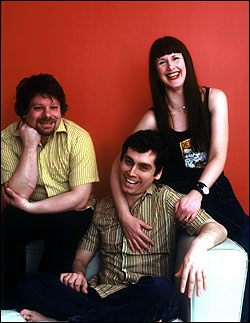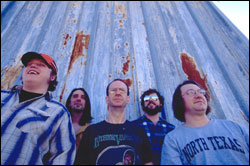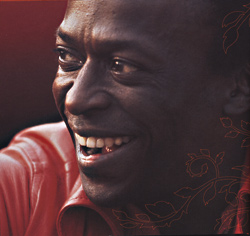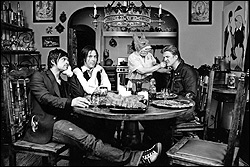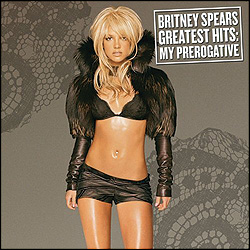This just in: Grown-ups can rock and roll. Yeah, I know, you’re all like, thanks for the Downing Street Memo of rock crit, boy genius; that scoop’s so backdated, those of us in the know have grown too cynical to even convince disbelievers. But let’s split some gray hairs: For every Neil Young flickering with ornery abandon between burn and fade, there’s an AARP-load of rockers who rock less than rockingly. Some nonkids with guitars soberly exchange the transcendent drive of their youth for a more reasonable adult pacing and the nuances of musicianship. Others refuse to yield their sense of invulnerability, fronting like they can indefinitely prolong the teenage belief that all obstacles exist to be immediately overcome.
The third way betwixt senescence and shamelessness is elusive, largely because few rockers want to acknowledge the self-imposed limitations that are the essence of growing up, those distinct parameters created by specific life choices. No shock that two of the smartest adults re-examining their rock and roll prerogatives are women, a gender which, you may have noticed, often lacks the luxury to act other than one’s age. Neither car-loving Brit Sally Crewe nor N.Y.C. rust-belt transplant Leah Archibald is in her dotage—the former just turned 30, though she’s coy enough to write something called “Lying About My Age.” Yet both work from a knowledge of how place defines who we are and how to act that’s suitably grown-up yet never rules out rock values like fun and sex.
The bristly pop of Crewe’s full-length debut, Drive It Like You Stole It, was intense in the taut, small-scale way you’d expect from her backup musicians, the boys from Spoon. “I’ve got everything to lose,” Crewe sang, and on “Got a Car, Got a Job,” she made that “everything” more explicit: “I’ve been thinking about leaving London/I’ve got friends in Austin/That I know/But I got a house and got a dog/Got a car and got a job/Yeah, you know.” Maybe she still does, but last September, Crewe and husband Gerard Cosloy, who also happens to run her label, 12XU, relocated to Austin. On her new disc, Shortly After Take-Off, she’s retained her friskiness and also shored up a tough sense of self. When a beau has the temerity to tell her, “Don’t forget to phone me,” on “Casino,” Crewe shoots back, “I can do anything that I want/When I want/Anything, you know.”
Given the leap of faith behind it, you might expect Crewe’s first album to brim with the intoxication of newfound freedom and possibility. But while the owner of Paul McCartney’s Aston Martin is still in love with the open road, her impulsive sexuality has smacked into a whole new means of restraint: distance. Texas is a big, broad state, after all, and even Texas is only a small part of the United States. “You’re 20 minutes away/I could be there in 10,” she sings on “Airport Song,” deliberating whether to race out to meet a lover whose flight’s been delayed—a typical dilemma on a disc where human-sized relationships are plunged into vast expanses, and characters must repeatedly leave each other behind.
With a mortgage in Brooklyn, a good job, and two kids, Leah Archibald is not going anywhere. Besides, she’s already made her move; now she imagines an alternate reality in her native Buffalo so lovingly, she could almost trick herself into thinking that staying behind was an option. With Sleeping on the Couch (Poptop), Archibald’s bar band once removed, Wide Right, dedicates itself to this conceptual project even more consciously than on its self-titled debut. “Dishrag” is the siren call of a spouse striving so mightily to make watching football in the garage seem as romantic as “Be My Baby” that it seduces the listener, if perhaps not the singer’s mate. Yet songs like “Laws of Gravity” (working-class life sucks) bring Archibald back to earth, though even here she entrusts her blue-collar strivers with the spark of hope that Springsteen so often denies his these days. In fact, Archibald’s balance between reality (“Royanne” is a mother’s riposte to an opinionated guidance counselor) and fantasy (“Junior High School Dream” details Archibald’s wandering eye) seems the very definition of sustainable rock and roll adulthood.
The most conscious limits that Crewe and Archibald accept are formal—both women lead bands that adhere to pretty strict conventions. But this isn’t Clapton retreating into the womb of the blues, or the Stones rocking the only way they remember how. When Wide Right slam the hell out of Loretta Lynn’s “The Pill”—not just the giddiest anthem of female emancipation this side of “Girls Just Want to Have Fun,” but the adultest anthem of female emancipation, period—they’re celebrating the fertile potential that guitar-bass-drums can yield when you commit to its restrictions. As for Crewe, her first order of business after relocating was to form a new version of her band, the Sudden Moves. “When you’re around,” she crows on Shortly After Take-Off, “It’s gonna take a big deal to bring me down.” That’s no declaration of invulnerability—just an acknowledgement of what it’s like to feel well defended by lovers and comrades. After all, Crewe and Archibald have a world of aging ahead of them. They know better than to go it alone.
